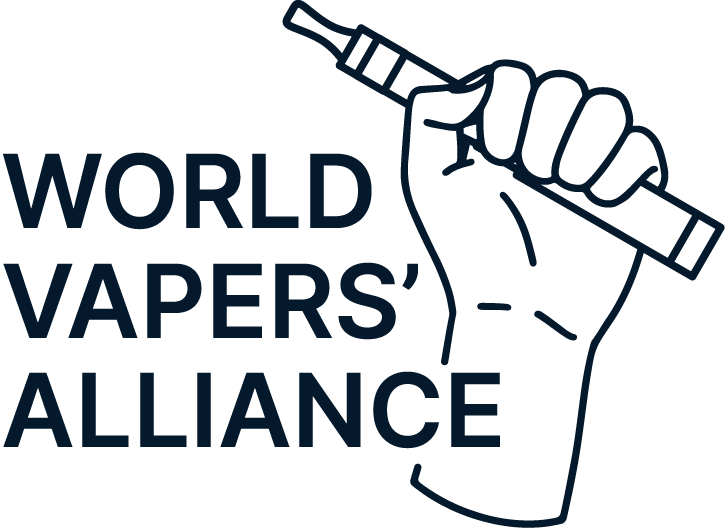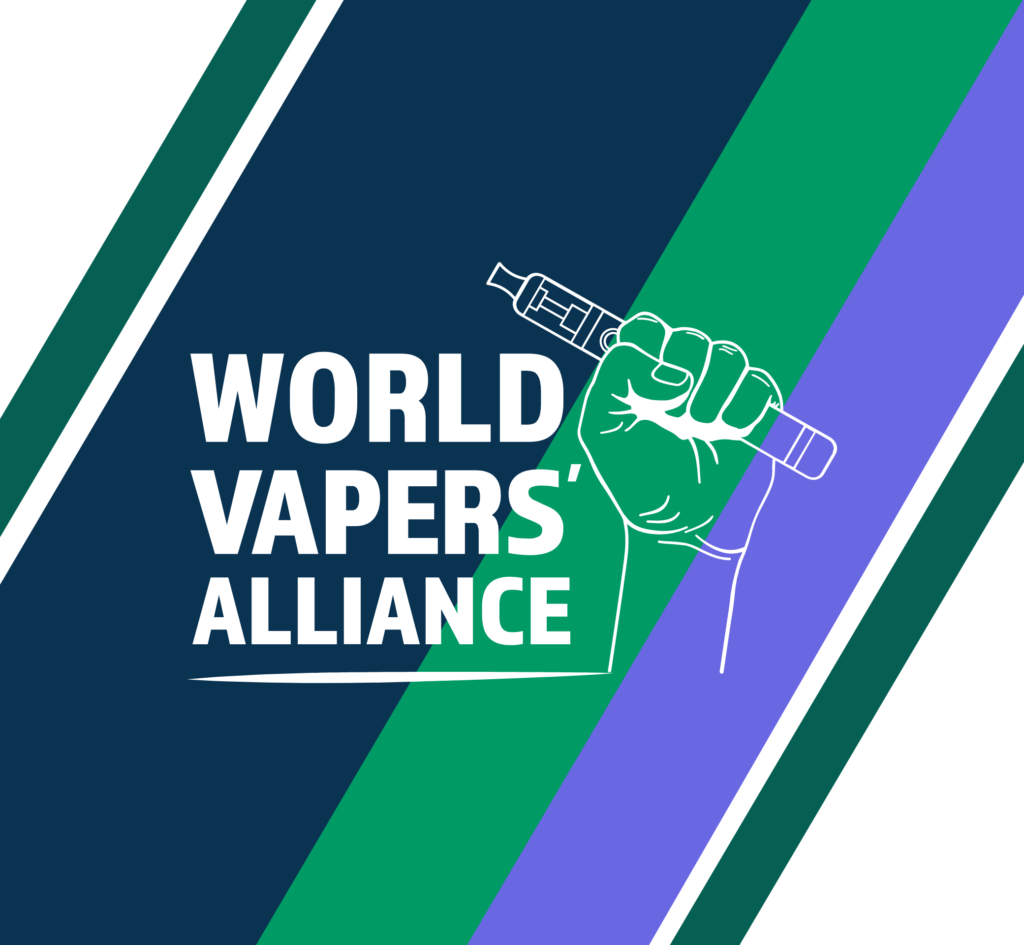La începutul acestei săptămâni, 100 de experți de top în domeniul reducerii daunelor provocate de tutun – inclusiv consilierul științific al WVA, prof. Bernhard Mayer – a transmis un mesaj clar către OMS: Războiul împotriva vapingului și a altor alternative trebuie să se încheie!
Dr. Mendelsohn, un expert australian, a subliniat clar că actuala abordare anti-vaping a OMS va “duce la mai multe decese și suferințe din cauza fumatului”Și are dreptate! Vapatul a ajutat deja milioane de fumători să renunțe definitiv. OMS trebuie să asculte în sfârșit consumatorii și știința pentru a salva 200 de milioane de vieți în întreaga lume.”.
Alianța Mondială a Vaperilor susține pe deplin experții și îndeamnă OMS să își reconsidere poziția actuală cu privire la vaping și alternative similare. Prezentăm mai jos cele trei solicitări principale din partea Organizației Mondiale a Sănătății înaintea conferinței lor privind controlul tutunului COP9 din noiembrie:
CE ÎȘI DOR CONSUMATORII DE LA OMS:
- RECUNOAȘTEREA ȘI INCLUDEREA METODELOR DE REDUCERE A DAMAGILOR TUTUNULUI
- DREPTUL LA ACCES ȘI LA ACCESIBILITATE PENTRU CONSUMATORI
- PARTICIPAREA EFICIENTĂ A CONSUMATORILOR LA DISCUȚIILE DE LA COP9
Milioane de consumatori din întreaga lume au renunțat la fumat cu ajutorul unor alternative mai puțin dăunătoare. Produsele de reducere a riscurilor (vaping, pliculețe cu nicotină, snus și altele) pot salva milioane de vieți. Există o cantitate enormă de dovezi care susțin aceste argumente.
Prin urmare, solicităm susținerea metodelor alternative de reducere a efectelor nocive ale tutunului și o reprezentare echitabilă în cadrul COP9.
- Organizația Mondială a Sănătății trebuie să susțină reducerea riscurilor cauzate de tutun
Fumatul este una dintre principalele cauze de boli și deces în lume. Peste opt milioane de oameni mor în fiecare an din cauza fumatului, aproape 99% dintre decesele legate de tutun fiind induse de fumat – nu de alte forme de consum de nicotină. Reducerea numărului de fumători și permiterea acestora de a trece rapid și eficient la o alternativă mai puțin dăunătoare ar trebui să fie o prioritate majoră pentru OMS și agențiile de sănătate publică din întreaga lume.
Totuși, în prezent, OMS tratează alternativele mai puțin dăunătoare exact în același mod ca și fumatul. OMS trebuie să își schimbe abordarea și să susțină reducerea riscurilor. Trebuie să se concentreze pe a ajuta fumătorii să renunțe la fumat, mai degrabă decât să piardă timpul combaterii produselor care fac același lucru.
În ciuda angajamentului Convenției-cadru pentru controlul tutunului (FCTC) față de reducerea daunelor produse de tutun, OMS și secretariatul FCTC continuă să solicite reglementări mai stricte pentru alternative mai puțin dăunătoare.
- Garantarea accesului și a accesibilității unor alternative mai puțin dăunătoare
Pentru a reduce ratele fumatului, trebuie să folosim toate metode posibile care se dovedesc a fi eficiente. Aceasta înseamnă, de asemenea, să ne asigurăm că aceste produse sunt disponibile, la prețuri accesibile și că informațiile despre ele sunt accesibile.
Avem deja exemple concrete despre ce poate realiza accesul la metodele de reducere a riscurilor.
- În Regatul Unit, Public Health England, o agenție a Ministerului Sănătății, recomandă în mod activ fumătorilor să treacă la țigările electronice. În Regatul Unit, ratele fumatului au scăzut cu 251 de milioane de dolari, 4 trilioane de dolari, din 2013 (când vapatul a devenit popular). Prin contrast, în Australia, care are unele dintre cele mai stricte reglementări privind vapatul din lume, ratele fumatului au scăzut cu doar 81 de milioane de dolari, 4 trilioane de dolari, în aceeași perioadă.
- Datorită deschiderii față de snus, o formă de tutun fără fum, Suedia raportează cea mai scăzută rată de fumat în rândul adulților din lumea dezvoltată, de doar 7%. Rezultatul este o rată mai mică a bolilor induse de fumat. Norvegia a cunoscut un succes similar datorită deschiderii sale față de snus.
OMS trebuie să pună capăt războiului său împotriva țigărilor electronice și a altor instrumente inovatoare de reducere a riscurilor. Recomandările pentru creșterea impozitării, interzicerea aromelor sau interzicerea completă a acestora trebuie retrase.
- Consumatorii și organizațiile din domeniul reducerii noxelor provocate de tutun trebuie să fie ascultate.
În ultimii ani, OMS a respins participarea consumatorilor și a experților în reducerea riscurilor la procesul decizional. A devenit o insulă în sine, o cameră de ecou a acelorași grupuri de control al tutunului, a căror viziune asupra lumii a rămas înrădăcinată în urmă cu cel puțin 30 de ani.
Mass-media și publicul nu au voie să observe sau să participe la lucrările COP. Ignorarea vocilor, a experiențelor și a vastelor cunoștințe ale experților în reducerea riscurilor și ale consumatorilor dăunează cauzei. Aceasta contravine transparenței și bunei guvernări.
Cerem OMS să pună capăt interdicției de facto a dezbaterii deschise în timpul COP și să stabilească noi platforme de dialog multipartite. Fumătorii și foștii fumători, consumatorii de alternative mai puțin dăunătoare, precum și experții independenți în reducerea riscurilor cauzate de tutun trebuie să aibă un cuvânt de spus în procesul decizional.
Îndemnăm OMS și secretariatul CCCT să aprobe noi abordări și să fie deschiși la inovații în reducerea riscurilor și să înceteze să ignore milioane de consumatori și experți în domeniu. Faptele nu mai pot fi ignorate.







